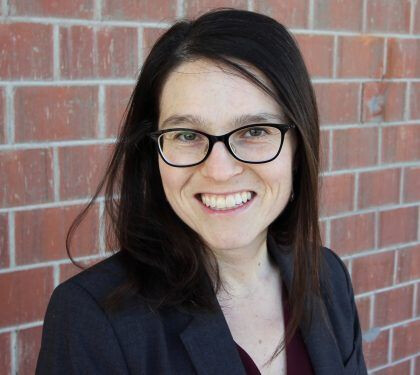Reframing Resilience in Pacific Northwest Agriculture
Content warning: This post mentions trauma, mental health challenges, and suicide.
At American Farmland Trust, we talk about resilience a lot. Phrases like, “resilience to climate change,” and “building a resilient future,” make frequent appearances, and we have just launched an exciting new initiative called Resilient Agriculture West.
When we talk about resilience in the context of climate change, the thinking goes something like this: we believe that farmers and ranchers have a key role to play in helping our planet be resilient in the face of global climate change, and so we must support producers in both making their operations resilient to the localized impacts of climate change, as well as adopting farming practices that will sequester more greenhouse gases.
But what if “resilience” is about more than what happens on the ground? What if it’s about more than irrigation efficiency, crop diversification, or tons of carbon stored? A more holistic understanding of resilience might encompass mental and physical well-being, social relationships, and the ability to cope with stress and trauma. If that’s the case, when we talk about resilience to climate change, we also need to talk about resilience to trauma, particularly the trauma of living through climate change.
Broadening our Understanding of Resilience
In January, as part of our Pacific Northwest Farmland for the Next Generation Training, we had the opportunity to gather with a group of agricultural service providers based in Washington and Oregon to learn how to approach our shared work of providing technical assistance to farmers and ranchers through a trauma-informed lens.
Pacific Northwest agriculture is facing the trauma of climate change, which is threatening its resilience and viability.Over two sessions, our guide Yasmeen Hossain led us through discussions about traumatic stress, its “risk factors,” and our role as agricultural service providers in fostering trauma resilience with the farmers and ranchers we support.
“Risk factors” are things that increase the likelihood someone will experience traumatic stress, and for farmers and ranchers there are many, including physical injury, lack of good health insurance, debt, regulations, fluctuating markets, and social isolation.
For producers who identify as BIPOC, LGBTQ+, women, immigrant, or veteran, those common risk factors may be compounded by lived experiences of discrimination or violence.
On top of risk factors intrinsic to agriculture, in the last several years, producers in the Pacific Northwest have weathered crises like extreme drought, an unprecedented heat dome, devastating wildfires, massive flooding, and destructive windstorms and hailstorms. More and more frequently, these traumas are front and center in our conversations with producers.
In recent years, the Centers for Disease Control has raised alarm bells about higher-than-average suicide rates in agricultural communities, and there is increasing media attention on farmers’ mental health. Fortunately, the Pacific Northwest agricultural service sector has been quick to respond, rolling out programs like crisis prevention trainings, and mobilizing for legislation and new funding to address the issue.
All of these interventions are needed and valuable, but we also need to think bigger and more holistically than crisis response. “Trauma resilience” describes the ability to process, cope with, and adapt to adverse experiences like the ones producers in our region are living through. As we learned in our training earlier this year, one of the core components of trauma resilience is community connection and a sense of belonging.
Building Community to Build Resilience
AFT’s Women for the Land Initiative was developed to help women farmers and landowners overcome gender-based barriers to manage their land for long-term sustainability. In the Pacific Northwest and across the country, Women for the Land “Learning Circles” connect women producers to the information, peer networks, and resource providers they need to implement conservation practices on their land.
But we’re beginning to understand that Learning Circles are also delivering a different, and equally important service: by providing new spaces for community connection, they’re laying a critical foundation for individual producer and community resilience to the trauma of climate change.
We recognize our sector has more work to do, to take responsibility for fixing or improving the “risk factors” we can control (for instance, improving access to health insurance, debt forgiveness, and disaster resilience funding). That’s a meaty topic that deserves its own blog post (or perhaps a few). Meanwhile, there are still a lot of things we can’t control, like the immediate effects of climate change, so let’s continue investing in the community and connection we all need to be resilient.
If you or someone you know is considering suicide, please contact the National Suicide Prevention Hotline by phone at 988 or by chat at https://988lifeline.org/chat/.




